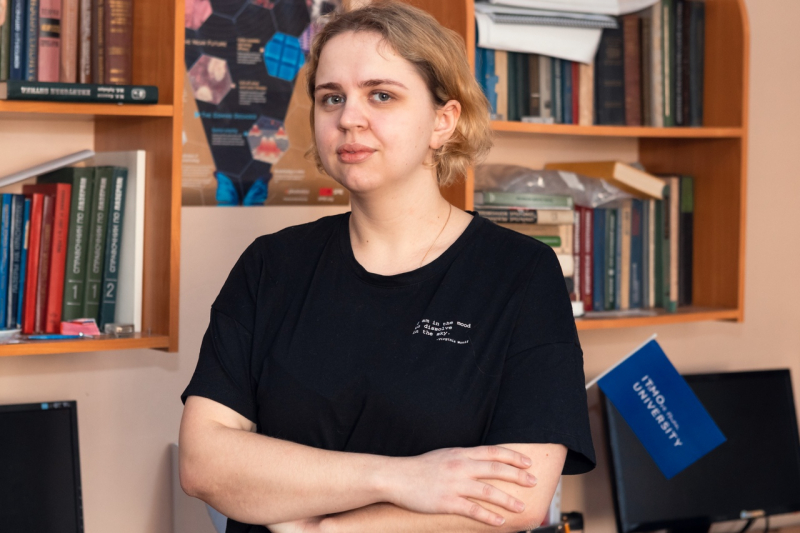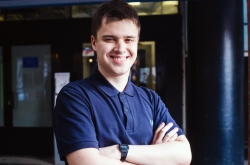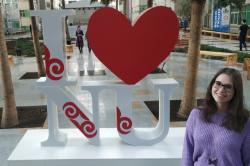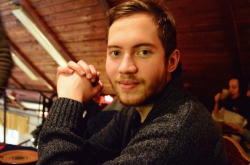To begin with, please tell us why you decided to apply for the IEEE Microwave Theory and Techniques Society scholarship?
I was eager to win this scholarship for several reasons. First of all, the MTT-S (The Microwaves and Theory and Techniques Society) is one of the most respected communities in my field. A chance to win this scholarship comes twice a year, and each time a maximum of ten people from all over the world is selected. It is an extremely distinguished award.
Second of all, I was hoping to win because I have two classmates who have previously received this scholarship. In fact, we have a lot of winners of various international competitions and grants, recipients of prestigious scholarships in our laboratory. I wanted to be one of them.
Moreover, the scholarship comes with one and a half thousand dollars for research and another thousand dollars for participation in the IEEE conference to present the results. By the way, since you get the money for a specific project, you need to write it in detail in your application: specify your goals and objectives, your work plan and so on.
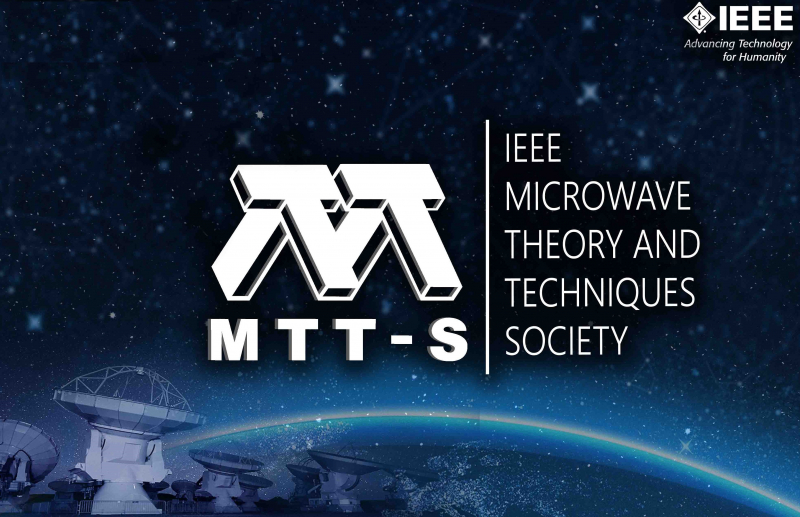
When did you learn that you had won the competition?
It happened at night, I think, between February 18 to 19. I have been waiting for the news about the scholarship since February 1, checking my mail every day, but nothing happened. I couldn't sleep that night. I almost accidentally refreshed the page and suddenly saw the letter. At first, I didn't believe it and wrote to Maxim Masyukov, who had received this scholarship the year before last, when he was a Bachelor’s student, to confirm that it was actually true. I couldn't believe it for a long time. Especially considering the fact that three days prior to this I learned that I had won the SPIE EPE20 Officer Travel Grant to go to the SPIE Photonics Europe conference (Strasbourg, France).
Please tell us more about the project itself. What does it deal with?
It focuses on the method of terahertz pulsed ellipsometry for cancer diagnosis. How does it work? Everybody knows about the existence of electromagnetic radiation. There is a terahertz frequency range (0.1 to 10 THz) between infrared and microwave wavelengths. Waves in this frequency range have important advantages for medical applications. The fact is that terahertz radiation is very well absorbed by water - it has been proven more than once that cancerous tissue contains significantly more water than healthy tissue. This is due to the fact that tumor tissues have more blood vessels.
During the last year, I've been doing pulsed terahertz spectroscopy. We've been gathering the refractive index and transmittance dependence from frequency. They were different for healthy and cancerous tissues. We've published an article about our research in the "Materials" journal.
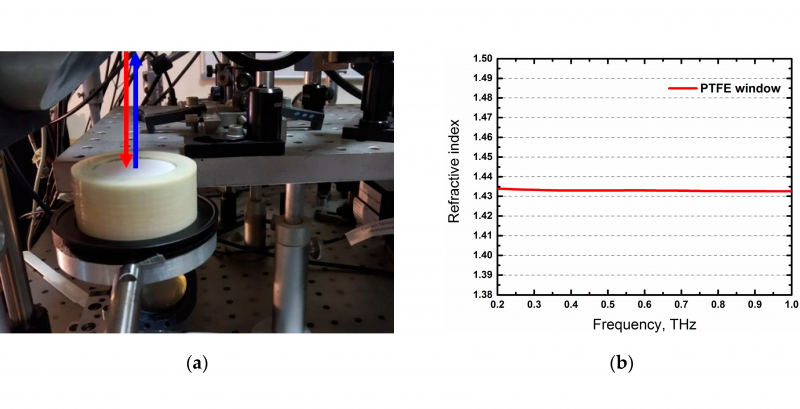
Our research was conducted on the stomach area. We worked together with the First Pavlov State Medical University of St. Petersburg. Doctors need this diagnostic method during surgery. Today, surgeons often have to cut out a very large segment of the human stomach, because it is not possible to quickly and reliably determine how big the affected area is. It is desirable that the affected area could be identified with maximum precision to make the surgery less traumatic.
Now we want to perfect the method by using terahertz pulse ellipsometry. That is, we can get even more parameters to deduce whether the tissue is cancerous or not. Ellipsometry itself is a method of studying the polarisation characteristics of a reflected electromagnetic wave from an object.
Why do you think the jury chose your application out of many?
Probably because my application was of a complex nature – I indicated that I already have experience in obtaining optical parameters of tissue in the terahertz frequency range, that I worked with real tissues, have already engaged in diagnostics and received results. I further explained that at the moment there is no research on utilizing terahertz pulsed ellipsometry for diagnostics but there are all the prerequisites for it. That must have been the reason for the jury to choose me.
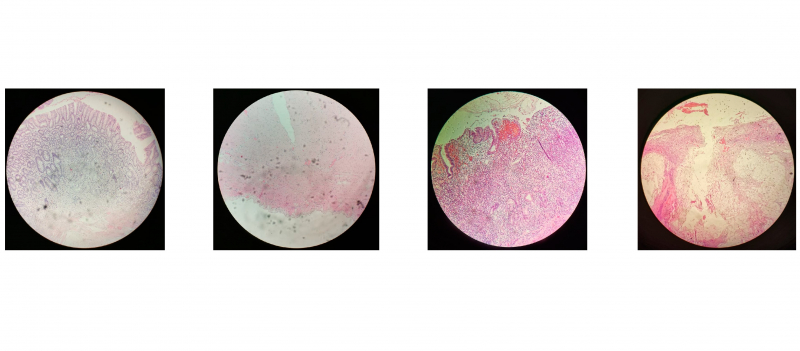
The scholarship provides support for research and subsequent presentation at the IEEE conference. How do you plan to develop the project once you have completed the research?
Everything will depend on the results. We cannot say with certainty how the characteristics of the wave will change depending on what tissue it interacts with. If this change is in the margin of error, then there is little point in going deeper, because it will not significantly increase the accuracy of diagnosis. However, if we are looking towards possible results, I would like to describe the physical process in detail from the fundamental point of view. It will be difficult: biological tissue is a very complicated environment, everything is very strongly interconnected, and the optical properties are unique for each person. But it would be very interesting!
What do you feel when working on the project? Is there a burden of responsibility because of the importance of this research field? What do you feel when you finally get a result?
I have seen a tumor removal surgery – it is highly motivating, it makes me move forward, work harder. When I first saw the biological tissue that we were supposed to investigate, I couldn’t say that I felt sick, but it came as a shock. It was a piece of human stomach.
As for the emotions I get with the result, it's a bit stretched in time. Initially, by measuring the biological tissue with a terahertz pulsed spectrometer, we get a signal that doesn't say much without interpretation. That's why processing is required. We wrote a special program for this because our measurement method required complex signal processing. And when we got the right data, it was cool, but for us it was already predictable, we expected it.
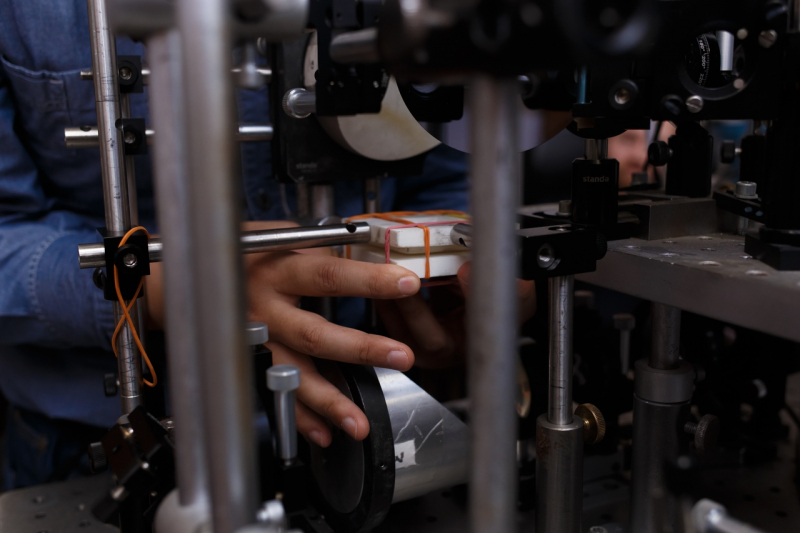
And how did you get involved with this topic?
Actually, up until the 10th grade, I was planning to dedicate my life to programming. However, my teacher sent me to a physics tutor and said that I had to take my State Exams in physics to have a better chance of going to university.
That was the moment when I got fond of physics and realized that I wanted to do it. I started to study it intensively, especially I was interested in the interaction between physics and biology. At that moment, it seemed to me that it was more beneficial for society than other fields of science. I thought that medicine is a huge layer of information, physics is also a huge layer of information, it would be interesting to find a place where they meet.
That is why I enrolled at ITMO University's Bachelor's program Laser Technology and Biomedical Optics. There I was involved in modeling – I observed the interaction of laser radiation with vessels for my Bachelor's thesis. After graduation, I decided to continue my studies in Biophotonics and enrolled at the Master's program. I began to study the method of terahertz pulse spectroscopy for the diagnosis of cancer under the scientific supervision of Mikhail Khodzitsky.
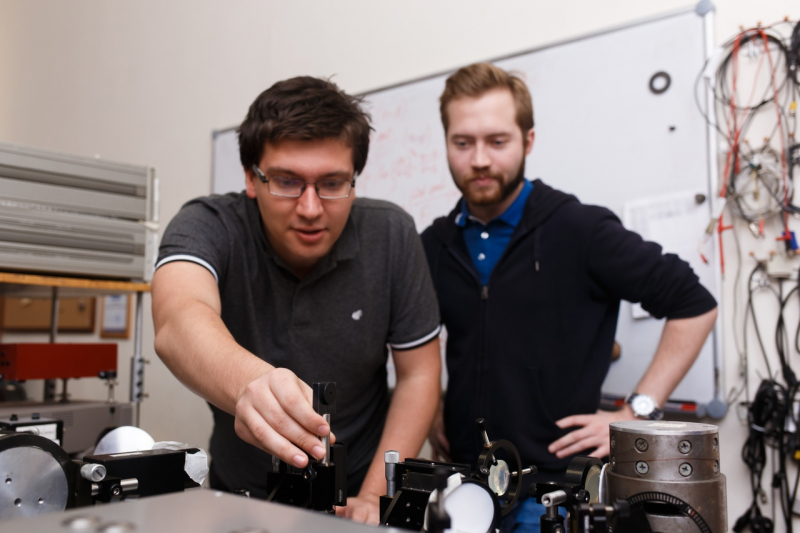
How do you feel about studying for a Master's degree?
I got into the "Terahertz Biomedicine" laboratory, where people are interested in what they do, it is very pleasant and very motivating. I see my colleagues getting prestigious scholarships and getting published in major journals, and I understand that I can do that too. I always need to know the path to growth, and the people to work with. If people around me achieve something, then I have to prove to myself that I can do it, that I can go even further. This competition is very helpful.
As for studying, I can't say that it’s hard. We have ten people in the group who conduct research at the laboratory, eight of them are on the way to graduate with honors (provided they defend a Master's thesis). I came to science for a reason, it gives me the opportunity to constantly improve. If you are successful at something, you want to do, even more, to set ever harder challenges. What seemed difficult a month ago now seems simple, and you are ready to take on new endeavors. That's the big plus of science – it makes you evolve.
Besides, you have a structured life – applications, conferences, scholarships, summer schools. This is very good – you are not just obsessed with science, you are improving in other fields, you interact with many interesting people.
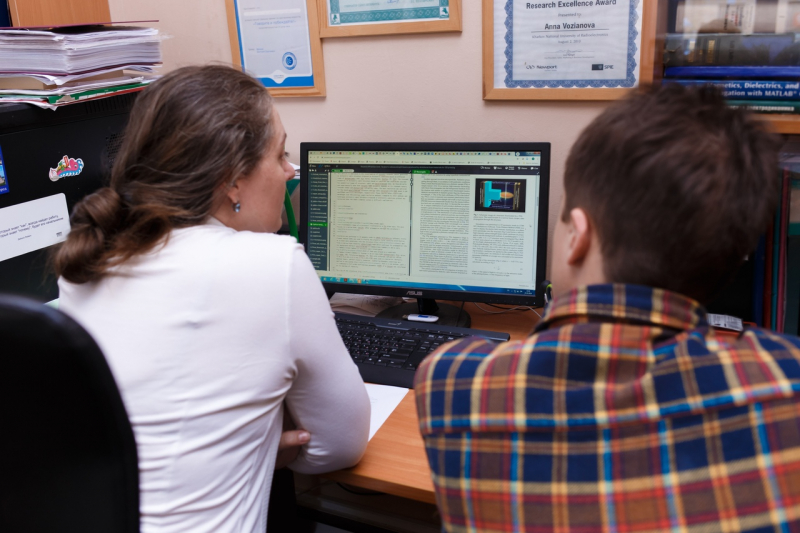
And what do you do besides studying and research?
Actually, I spend a lot of time at the laboratory, I come at 10-11 am and leave after 9 pm. On weekends, I try to catch up with friends, and I also like to read a lot. When I had more time, I read a lot of fiction. I especially love Russian classics. Now I mostly read books on physics.
What are you going to do after you graduate?
I want to continue my education. By the way, having such a scholarship in my portfolio is useful. I'm going to continue to participate in grants, to apply for other scholarships. And after graduation, there is such a thing as a postdoc, when it is considered a good idea to go away for a year and work in another laboratory, not where you worked on your PhD.
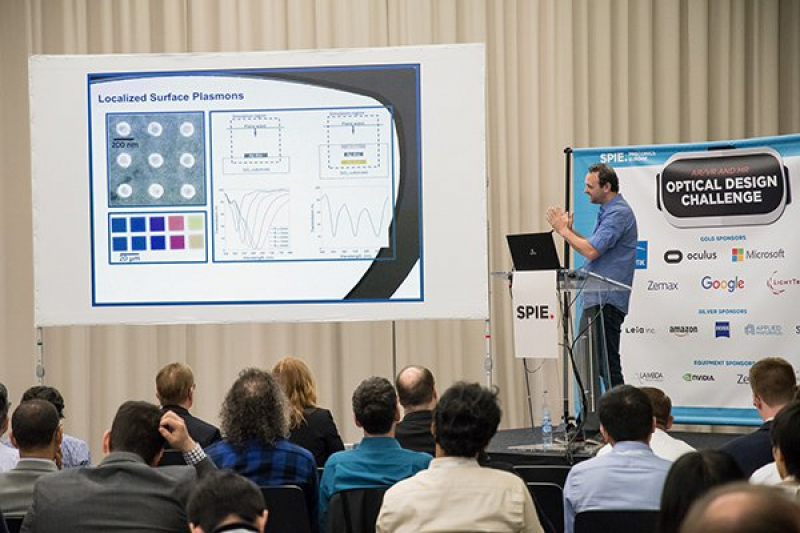
How do you see your role in science in ten years?
Now I'm drawn to theoretical rather than applied physics – this is the direction I want to get into. However, who knows, science is changing very rapidly.
In any case, once a professor told us that all conferences look like this: there is a number of people who are the founders of this or that topic, they are at the cutting edge of science. They are followed by a large number of people who work in a laid-out direction. In ten years, I would like to be at that edge, I would like to develop my topic and achieve significant results.
Translated by Pavel Vorobyev
